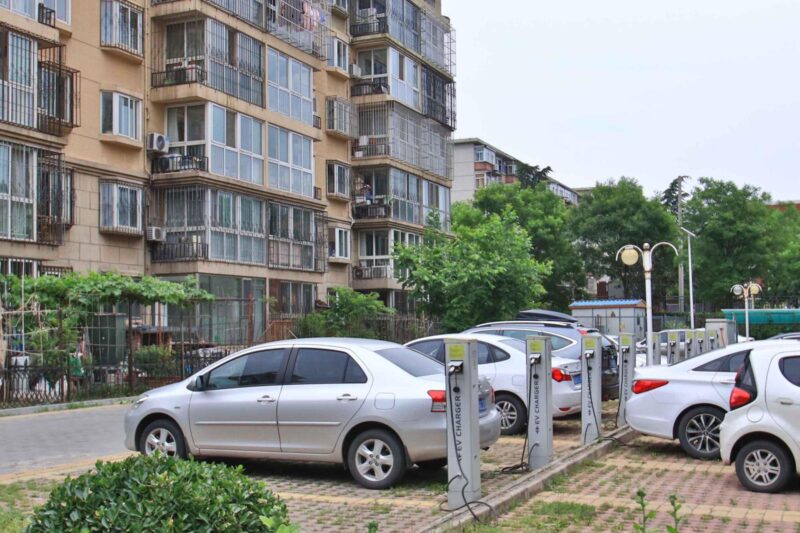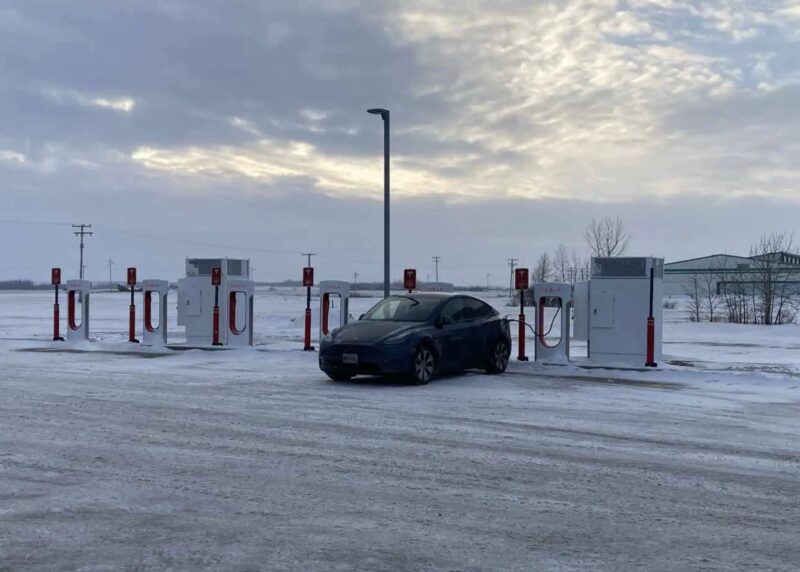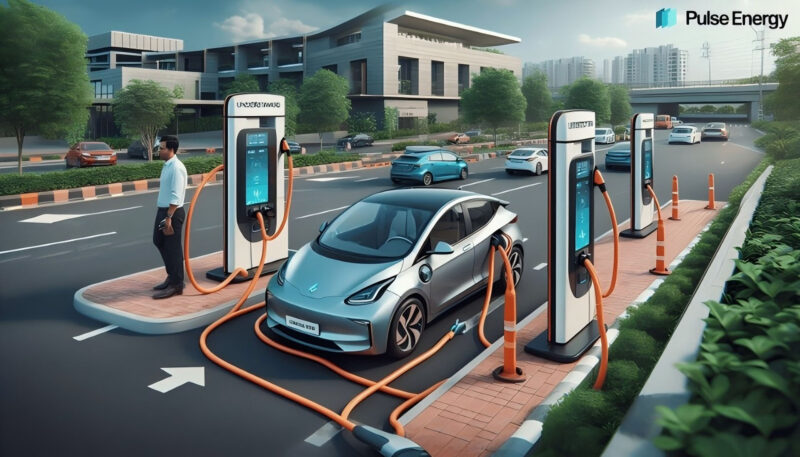High-quality Electric Bus Charging Options
Reliable, Scalable E-Bus Charging Infrastructure from a Trusted Manufacturer. Powering Public & Private Transport Efficiently.
Overcoming E-Bus Charging Hurdles: Downtime, Grid Impact & Scalability
We understand the operational challenges of electrifying bus fleets – minimizing vehicle downtime, managing high power demands on the grid, and ensuring future-proof scalability. Our tailored DC fast charging solutions (50kW-350kW+) are engineered to optimize charging schedules, reduce operational costs, and seamlessly integrate with your depot needs.
Engineered for Performance, Reliability, and Fleet Efficiency
Rapid Charging
Minimize downtime with high-power DC fast chargers (up to 350kW+), supporting opportunity and depot charging.
Energy Management
Intelligent load balancing and optional V2G capabilities reduce grid strain and energy costs.
Proven Durability
Robust, weatherproof (IP55+) designs ensure reliable operation in demanding depot environments.
Remote Monitoring
OCPP-compliant platform for real-time diagnostics and operational oversight.
Bus Charging Products
FC060750
- 60kW-360kW
- Level 3
- Business charger
- Maximum output power 360kW
- 7-inch Display Screen
- Supports CCS1, CCS2, CHAdeMO, GB/T
- IP54 level ingress protection
- IK10 anti-collision level
- Full charging standard OEM/ODM
SC07750G
- 30kW/40kW
- Level 3
- Business Charger
- 30 kW / 40 kW output power
- Supports CCS1, CCS2, CHAdeMO, GB/T
- LCD display screen
- Wi-Fi, 4G, Bluetooth,LAN
- OCPP 1.6 / 2.0Protocol
- Compact design
HC0601K
- 60kW-240kW
- Level 3
- Business Charger
- Maximum output power 240kW
- 7-inch color touchscreen
- IC contactless card reader
- IP54 level ingress protection
- Supports CCS1, CCS2, CHAdeMO, GB/T
- Dynamic Load Balancing
VC301KS
- 30kW-240kW
- Level 3
- Business Charger
- Up to 240kW charging power
- 7-inch advertising screen
- Wi-Fi, 4G, and Ethernet connections
- OCPP 1.6 protocol
- Overload or surge protection
- Compatible with all electric vehicles
MC07750G
- 20kW / 30kW / 40kW
- Level 3
- Business Charger
- Max power up to 40kW
- Customized cable length
- CCS1 or CCS2 connector
- Exquisitely designed
- Overheat protection
- Comprehensive electrical protection
XC07750
- 20kW / 30kW / 40kW
- Level 3
- Business Charger
- Maximum 40kW output
- Supports CCS1, CCS2, CHAdeMO, GB/T
- LAN/485/GPRS/4G/WIFI
- 4.3-inch touchable screen
- IP54 waterproof enclosures
- Exquisitely designed
MC07750
- 40kW / 50kW / 60kW
- Level 3
- Business Charger
- Powerful charging up to 60kW
- LED touch screen
- Wi-Fi, Bluetooth, 4G, LAN
- Customized cable length
- Overheat protection
- Comprehensive electrical protection
Tailored E-Bus Chargers Engineered to Your Specifications
Branding & Enclosure Design: Custom logos, colors, and housing to match your brand identity.
Hardware Customization: Power module configurations, specific connector types, cable lengths.
Software Integration: Custom firmware, integration with existing fleet management or payment platforms, API access.
Certification Support: Assistance with obtaining local or specific certifications.
Why Partner with TX for Your E-Bus Charging Needs?
Proven Expertise
10+ years focused on EV charger manufacturing with a strong track record in commercial applications.
Cost-Effective
Leverage our optimized supply chain and manufacturing scale for competitive pricing (5-8% cost advantage).
Quality & Reliability
ISO-certified processes, rigorous testing (including component level), ensuring long-term performance.
Scalable Production
High-capacity factory (20,000m², 500k AC / 10k DC units/year) ready for large deployments.
Your EV Charging Project:
From Consultation to Completion
Tanxun provides comprehensive electric vehicle charging solutions for your business. We listen to your needs,understand your specific charging needs, site requirements, and budget.
Contact us via phone, email, or online form to discuss your EV charging needs.We will ensure to offer the most precise solution for you.
Based on your needs, we will provide a customized plan, covering charger type, power, quantity, installation, and software integration.
Receive a detailed and transparent quote within 24 hours, with no hidden fees. helping you make the most informed decision.
We support various payment methods, including bank transfer, credit card, and PayPal.
Our standard delivery time is 2-5 weeks, depending on the customization level.
Our after-sales service includes 24/7 technical support, regular maintenance, and a 2-year warranty.
Electric Bus Charging
Unlocking a Rich Range of Exclusive Products
In addition to electric bus charging stations, our products cover all categories within the charging industry.
EV Charging Resources

Do You Need an EV Home Charger?
A home EV charger isn’t mandatory but enhances convenience, cost-efficiency, and battery health. Public charging risks availability issues and higher costs. Opt for Level 2 charging (240V) for home use, balancing speed and affordability. Assess electrical capacity and explore government subsidies for installation savings.

How are Disputes Resolved Over Community-Shared Charging Piles?
Conflicts over shared EV charging often stem from charger hogging, unauthorized use, equipment damage, cost disputes, and accessibility issues. Clear communication with signage, meetings, and updates minimizes misunderstandings. Technology like charging software, RFID access, and apps enables scheduling, billing, and real-time monitoring. Formal dispute processes include mediation, arbitration, or legal action. Fair policies require energy assessments, rules for usage/costs, accessibility compliance, and regular reviews. Transparency in billing and data integration enhances consumer protection, ensuring equitable charging for all residents.

How to Maintain EV Charging Infrastructure in Extreme Climates (-30°C to +50°C)?
Extreme temperatures (-30°C to +50°C) challenge EV charging infrastructure through material degradation, condensation, and efficiency loss. Solutions include silicone cables, UV-resistant housings, active cooling/heating systems, and quarterly maintenance tailored to climate severity. Real-world failures (e.g., northern China’s cold) highlight the need for pre-weather inspections, firmware updates, and sheltered installations. Prioritize adaptable materials and robust thermal management for reliable chargers.

What Will Charging Stations Look Like in 2040?
By 2040, EV charging infrastructure will be widespread, intelligent, and sustainable. Charging stations will integrate seamlessly into urban environments (lampposts, roads) and prioritize ultra-fast speeds (350kW+), smart grids, and vehicle-to-grid (V2G) energy exchange. Renewable energy adoption, megawatt charging for trucks, and wireless solutions will dominate, while businesses shift to subscription models and data-driven services. Enhanced safety protocols, cybersecurity, and reliability ensure seamless, eco-friendly charging, supporting a cleaner, grid-responsive future.
get a tailored OEM solution
- Comprehensive OEM solutions
- Safe and reliable chargers
- Cost-effective options
- Suitable for all types of businesses
